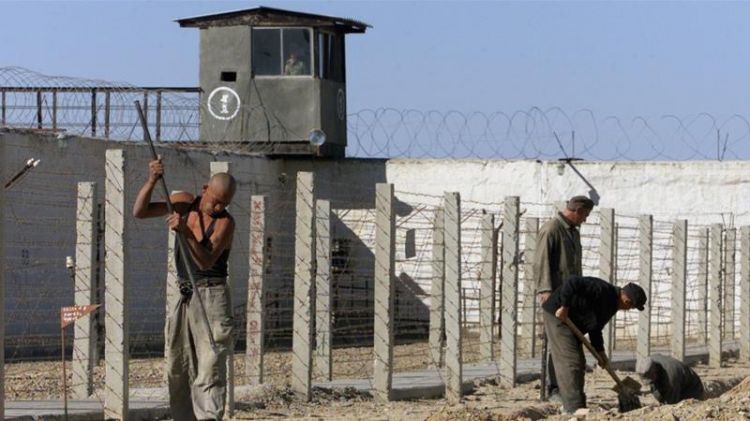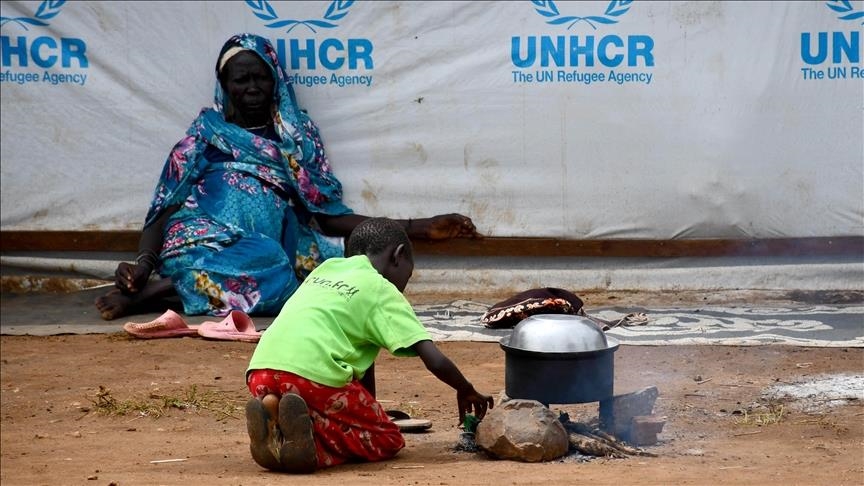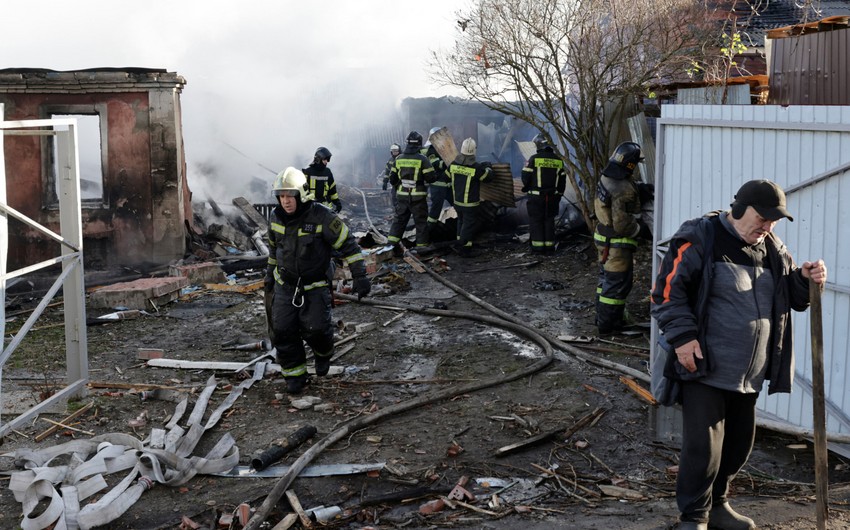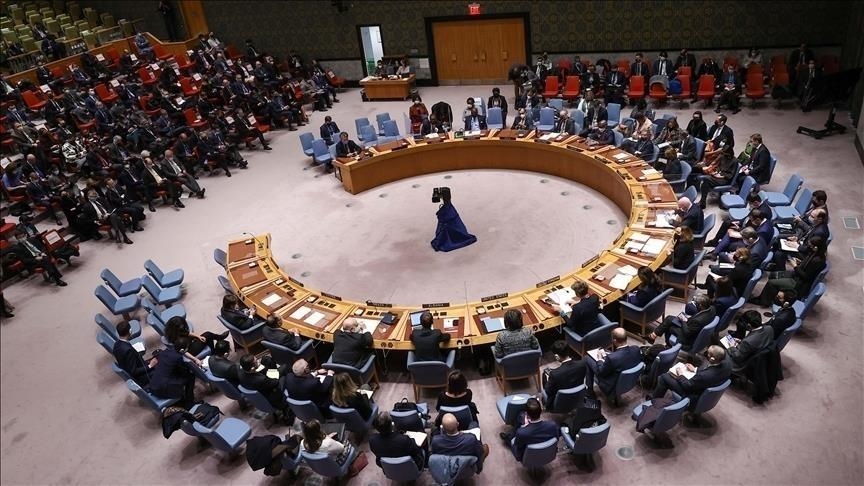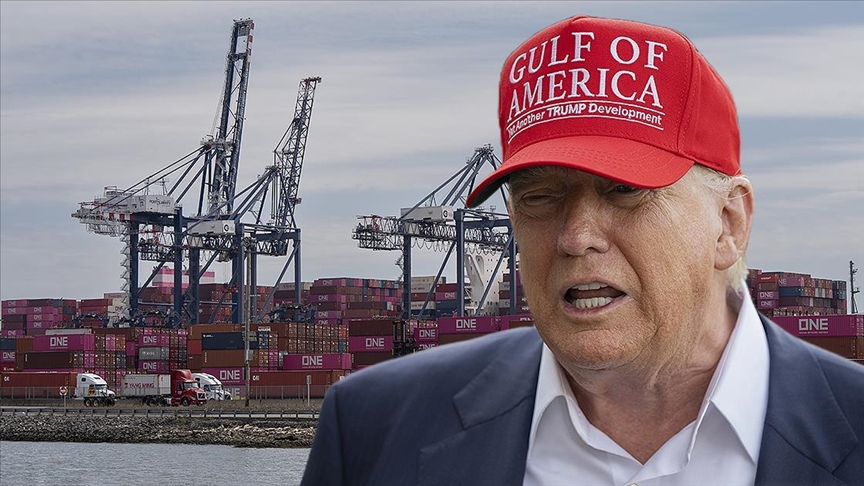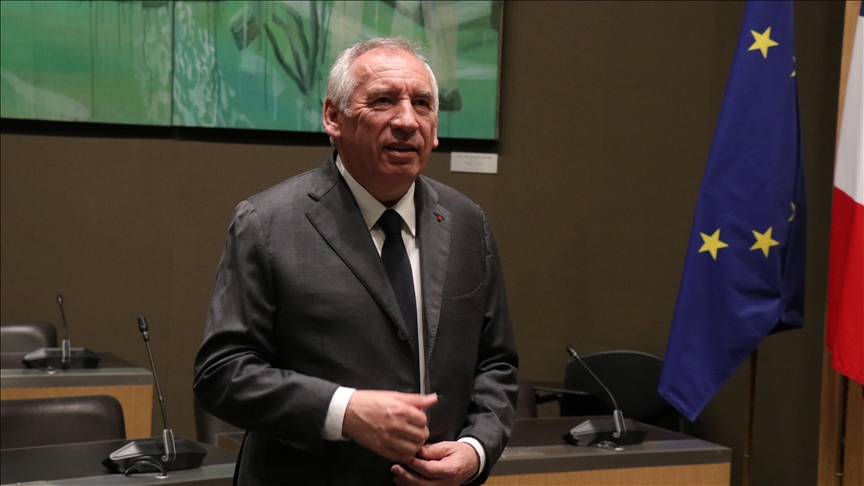Muhammad Bekjan was lucky to survive Uzbekistan's most notorious prison.
Jaslyk, or Youth, Prison was where thousands of alleged "radicals", "terrorists", secular opposition figures and dissidents ended up after government-orchestrated trials based on trumped-up charges and "confessions" acquired through torture and threats, according to rights groups, Western governments and the United Nations.
The prison became the darkest symbol of late Uzbek President Islam Karimov's authoritarian rule that turned the Central Asian nation of 32 million into one of the post-Cold War world's most repressive societies.
In 2002, two inmates were allegedly immersed in boiling water and killed there, according to a Western expert who studied photos taken by an inmate's mother, and dozens more were tortured to death every year.
"It is a Nazi concentration camp," said Bekjan, who spent two months in Jaslyk - and almost 18 years in other Uzbek jails.
"What happened there can't be forgiven," the 66-year-old told Al Jazeera.
Bekjan, now gaunt and white-haired, ran the Erk (or Freedom) newspaper published by the eponymous party, led by his elder brother Muhammad Solih who challenged Karimov's grip on power. By the mid-2000s, most of Erk's activists were banished or jailed.
In early August, Karimov's reformist successor, Shavkat Mirziyoyev, ordered to close Jaslyk down.
The Uzbek Ministry of Internal Affairs called it a "truly historic decision" made to "promote the country's positive image abroad".
But the government's motivation has worried experts.
"The main motive was the improvement of the country's international image rather than a sincere wish to start a dialogue with the people, improve their rights," said Alisher Ilkhamov, an Uzbekistan-born research associate at the SOAS University of London.
"The value of this step will be minimal without a reform of the entire [penitentiary] system throughout the country and access to prison facilities to Red Cross representatives," he told Al Jazeera.
There hasn't been a single step towards a political perestroika.
MUHAMMAD BEKJAN, JOURNALIST AND FORMER PRISONER
Uzbek authorities did not show "any signs of penitence" and never admitted that Jaslyk was similar to Stalinist Gulags, he said.
In fact, the Ministry of Internal Affairs lauded Jaslyk.
"It is up to all sanitary and legal standards," ministry spokesman Kutbiddin Burkhonov said in early August. "It was one of the most modern colonies."
Eliminating 'enemies' of state
In 1999, Uzbek intelligence kidnapped Bekjan in the capital, Kyiv, after a series of explosions and attacks in Uzbekistan that Karimov's government claimed were organised by "Islamists". At the time, he was living in the capital with his wife, Nina Lonskaya, and ran a grocery shop.
Bekjan was tortured to such an extent that at one point he "could not recall the names" of his daughters, he said.
An Uzbek court sentenced him to 15 years for his "role" in the attacks. Authorities expropriated his apartment, had his underage daughters followed and abused his wife.
"They interrogated me when I was pregnant, took away my passport," Lonskaya, who ceaselessly campaigned for Bekjan's release, told Al Jazeera.
Karimov's government used the attacks as an excuse to jail thousands of critics, opposition and religious activists, including Muslims practising their faith outside government-controlled mosques.
Each conviction triggered arrests, interrogations and further convictions of relatives, neighbours, friends and colleagues, rights advocate Surat Ikramov, who documented thousands of such cases, told Al Jazeera.
After his trial, Bekjan ended up in Jaslyk.
The prison was set up at a former military base hidden in the impassable sands on the Ustyurt plateau, where Soviets tested chemical weapons. Around Jaslyk, almost Saharan summers follow Siberian winters, and salt laced with poisonous chemicals from the nearby, nearly dead Aral Sea fills the air and poisons the soil.
But things indoors were worse with bad food and salty, untreated, diarrhoea-inducing water, overcrowded barracks rife with tuberculosis and scabies, coffin-like solitary cells.
Prisoners were not allowed to pray, talk and even look at each other, Bekjan and other former Jaslyk inmates said.
They were ordered to squat and sit down for hours, sing the Uzbek anthem, recite Karimov's works, publicly "confess" their sins - and faced beatings, torture, electrocution and sexual humiliation.
[Uzbek authorities must] begin a formal process of examining the torture, ill-treatment, and arbitrary imprisonment that occurred at Jaslyk and other prisons and places of detention over the last quarter-century.
STEVE SWERDLOW, CENTRAL ASIA RESEARCHER AT HUMAN RIGHTS WATCH
Bekjan recalls that on his first day in Jaslyk, an inmate told him that 71 convicts had been killed there already. He was placed in a barrack with 16 people, most of whom were members of Hizb-ut Tahrir, a party that prohibits violence, but is banned in Uzbekistan as "terrorist".
"They probably would have killed me," Bekjan said sitting next to his wife at an Uzbek cafeteria in Kyiv and sipping green tea.
But he was "saved", by being transferred to another jail.
In 2011, he had his jail term extended by almost five years.
At the time, he was one of at least 10,000 "political prisoners" as Karimov's government intensified the purges after Uzbek troops opened fire on protesters in the eastern city of Andijan in 2005.
Hundreds of protesters were killed, and hundreds more were jailed.
One of them was Tavakkalbek Khojiyev, whose trial this reporter observed for several weeks in 2005.
Khojiyev was sentenced to 17 years in jail and died in 2014 after his family published his letter describing the torture and abuses in Jaslyk.
Officials claimed the 36-year-old died of a heart attack, but his brothers said he was beaten to death - and released a harrowing photo of his body.
Half-way reforms
Only Karimov's death in 2016 slowed the violence down.
His successor, Mirziyoyev, started cautious economic reforms, sacked some security officials and amnestied some political prisoners.
Bekjan was one of them after becoming one of the world's longest-imprisoned journalists.
But he spent a year "under supervision" before authorities let him travel abroad and reunite with his family.
Initially grateful to Mirziyoyev, he now criticises government's reluctance to rehabilitate and compensate the victims of his predecessor's purges.
"There hasn't been a single step towards a political perestroika," Bekjan concluded.
International observers agree.
Uzbek authorities must "begin a formal process of examining the torture, ill-treatment, and arbitrary imprisonment that occurred at Jaslyk and other prisons and places of detention over the last quarter-century," Steve Swerdlow, a senior Central Asia researcher at Human Rights Watch, told Al Jazeera.
AlJAZEERA

